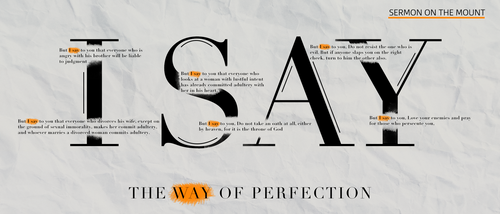When Mercy Became a Weapon (Day 1)

When Mercy Became a Weapon
"They made a law of mercy become a weapon of vengeance."
Matthew 5:38-39 ESV
"You have heard that it was said, 'An eye for an eye and a tooth for a tooth.' But I say to you, Do not resist the one who is evil. But if anyone slaps you on the right cheek, turn to him the other also."
Devotional Thought
"An eye for an eye" sounds harsh to our ears. But when God gave this law, He was actually establishing mercy, not cruelty. Here's what He was saying: if someone was falsely accused of an evil act, the payment for that evil could not exceed the original act.
Before this law, vengeance was unlimited. Someone steals your sheep? You burn down their house. Someone insults your family? You kill their son. It was a vicious cycle that never ended. God's law put boundaries on retribution. It said, "This far and no further."
But notice something incredible in that Deuteronomy passage: this law was meant for judges to carry out, not individuals. This wasn't a personal permission slip for revenge. It was a legal framework for proportional justice in the courts.
The Pharisees missed that. They took a law meant to be a limitation for mercy and turned it into an obligation for the merciless. They took justice into their own hands and used God's Word to justify their vengeance.
And here's where it gets personal: we do the same thing. We find Bible verses about "righteous anger" to justify our rage. We quote verses about "speaking truth" to excuse our harsh words. We use God's Word to justify what our flesh already wants to do.
Just like the Pharisees, we can manipulate Scripture to maximize what we want and minimize what makes us uncomfortable.
Tomorrow, we'll see how Jesus responds to this twisted thinking. And it's going to challenge everything we thought we knew about standing up for ourselves.
Before this law, vengeance was unlimited. Someone steals your sheep? You burn down their house. Someone insults your family? You kill their son. It was a vicious cycle that never ended. God's law put boundaries on retribution. It said, "This far and no further."
But notice something incredible in that Deuteronomy passage: this law was meant for judges to carry out, not individuals. This wasn't a personal permission slip for revenge. It was a legal framework for proportional justice in the courts.
The Pharisees missed that. They took a law meant to be a limitation for mercy and turned it into an obligation for the merciless. They took justice into their own hands and used God's Word to justify their vengeance.
And here's where it gets personal: we do the same thing. We find Bible verses about "righteous anger" to justify our rage. We quote verses about "speaking truth" to excuse our harsh words. We use God's Word to justify what our flesh already wants to do.
Just like the Pharisees, we can manipulate Scripture to maximize what we want and minimize what makes us uncomfortable.
Tomorrow, we'll see how Jesus responds to this twisted thinking. And it's going to challenge everything we thought we knew about standing up for ourselves.
Application Questions
- Have you ever used a Bible verse to justify behavior that was more about revenge than righteousness? What happened?
- Why is it so tempting to take justice into our own hands instead of trusting God with it?
- What's the difference between pursuing justice and pursuing vengeance? How can you tell which one is driving you?
Today's Challenge
Think of one situation where you feel justified in your anger toward someone. Ask yourself honestly: Am I pursuing justice or revenge? Am I operating like a judge making a ruling, or like someone who wants to get even?
Today's Prayer
Father, forgive me for the times I've twisted Your Word to justify my vengeance. Help me see the difference between Your justice and my desire for payback. Teach me to trust You with the outcomes I can't control. I surrender my right to get even. Amen.
Posted in retaliation

No Comments